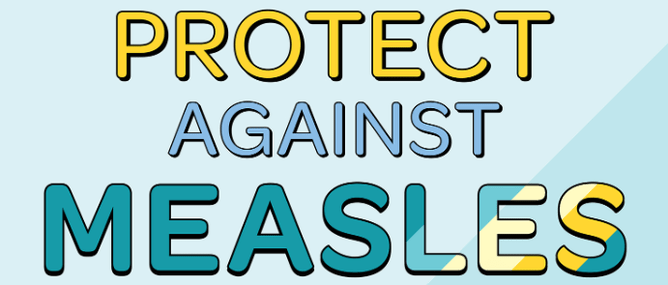Measles outbreak
There are currently 11 confirmed cases of measles in Aotearoa: 10 in Te Tai Tokerau (Northland) and 1 in Tāhuna (Queenstown)
Measles is a highly infectious and very serious disease
Measles can lead to pneumonia (chest infection), encephalitis (swelling of the brain), and even death
You can see information about locations of interest here
You can see information about symptoms of measles here
If you think you or someone in your whānau might have measles, please call us (or your whānau member's regular healthcare provider).
If you are concerned your symptoms might be life-threatening, call 111.
Protecting yourself & your whānau against measles
If you were born before 1969:
All adults who were born and raised in Aotearoa prior to 1969 are assumed to be immune to measles due to measles circulating in the community
If you were born before 1969 but did not live in Aotearoa during that time, you may still be immune depending on whether you lived in a country with circulating measles or not; we recommend you discuss your risk with your healthcare provider
If you were born from 1969 onwards:
Immunisation is your best protection against measles
Tamariki usually receive their measles immunisations at 12 months and 15 months old
All rangatahi and adults who aren't immunocompromised should have two documented doses of a measles immunisation OR serological evidence of immunity to measles (i.e. a blood test showing immunity)
Measles immunisation is FREE for:
All tamariki and rangatahi aged under 18 years living in Aotearoa (regardless of residency status)
All adults aged 18+ living in Aotearoa who are eligible for funded healthcare services
Checking your measles immunisation status / getting your measles immunisations
Call our nurse line if you would like to check whether you and your tamariki have TWO documented measles immunisations each
If you're due for a measles immunisation, you can:
Call our reception on 04 472 4266 to book a practice nurse appointment, or
Visit a local immunisation clinic: lists available by region here
Protecting yourself and your whānau also helps to protect the most vulnerable in your community
People who are immunocompromised or who are hapū (pregnant) cannot receive the measles vaccine
If you're able to get immunised against measles, doing so helps to protect those who can't: if you come into contact with the measles virus but don't catch it because you're protected, then you won't pass it on to those who aren't protected

